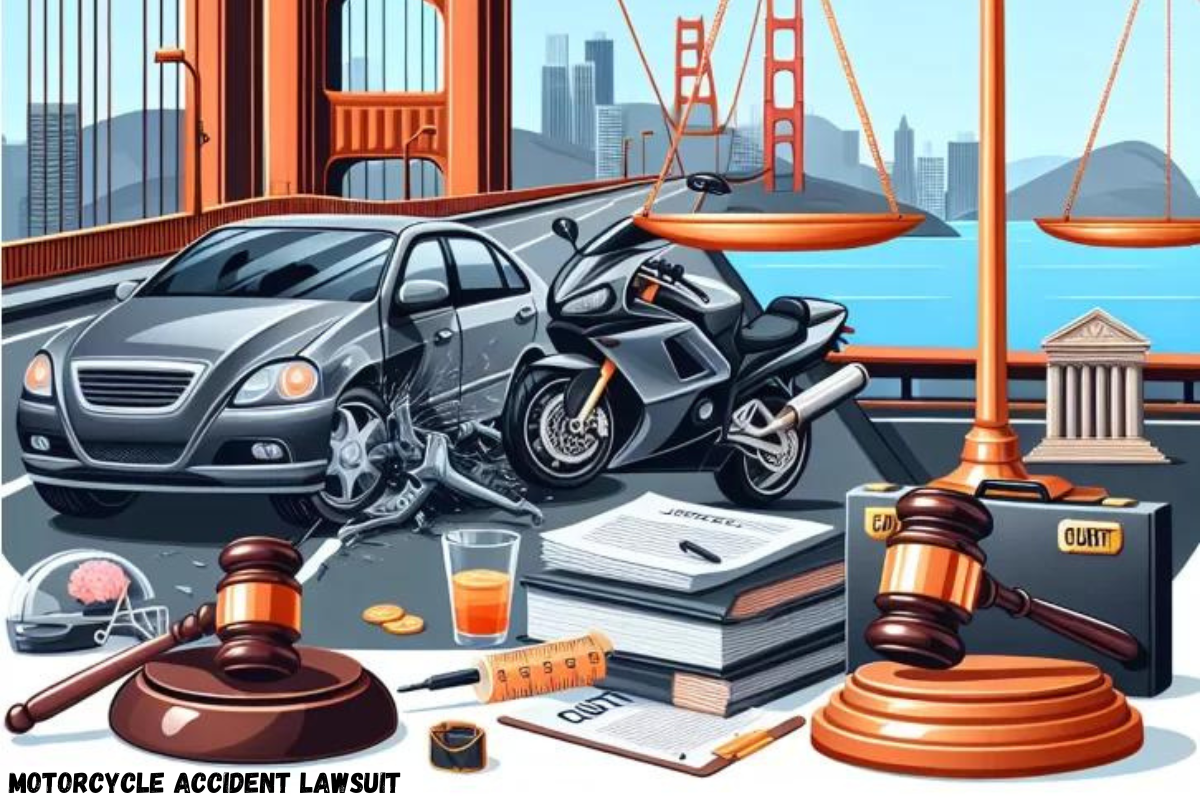Introduction to Motorcycle Accident Lawsuits
Definition and importance: A motorcycle accident lawsuit is a legal action taken by a person who was injured in a motorcycle crash. This type of lawsuit helps the injured person get money for their medical bills, lost wages, and other damages. It is important because it holds the responsible party accountable and provides financial support to the injured person. Common reasons for filing a lawsuit: People file a motorcycle accident lawsuit for several reasons. They may need to cover medical costs from injuries. They might have lost income because they can’t work. They may also seek compensation for pain and suffering caused by the accident.
Understanding Motorcycle Accident Claims
Types of damages you can claim: In a motorcycle accident lawsuit, you can claim different types of damages. These include money for medical expenses, lost wages, and property damage. You can also ask for compensation for pain and suffering caused by the accident.
Economic vs. non-economic damages: Economic damages are costs that can be measured with receipts and bills. This includes medical bills and lost income. Non-economic damages are harder to measure and include pain and suffering and emotional distress. Both types of damages are important in a motorcycle accident lawsuit to get fair compensation.
Steps to Take After a Motorcycle Accident
Gathering evidence (photos, witness statements, etc.): After a motorcycle accident, start by collecting evidence. Take photos of the accident scene, your injuries, and any damage to your motorcycle. Get witness statements from people who saw the accident. This evidence is important for your motorcycle accident lawsuit.
Seeking medical attention: Get medical attention right away, even if you feel fine. Some injuries might not show up immediately. A doctor will check your health and create records of your injuries, which can help your motorcycle accident lawsuit.
Reporting the accident: Report the accident to the police and file a report. This report provides an official record of the accident and can be important for your motorcycle accident lawsuit. Be sure to get a copy of the report for your records.
Choosing the Right Legal Representation
How to find a qualified motorcycle accident attorney: To find a qualified motorcycle accident attorney, start by looking for lawyers who specialize in motorcycle accident lawsuits. Check their experience and track record in handling similar cases. You can search online, ask for recommendations, or consult local legal associations.
Questions to ask potential lawyers: When meeting with a lawyer, ask them key questions. Find out about their experience with motorcycle accident lawsuits. Ask how they plan to handle your case and what their success rate is. Inquire about their fees and how they will communicate with you throughout the process. These questions will help you choose the best attorney for your case.
How the Legal Process Works
Filing a claim: To start a motorcycle accident lawsuit, you first need to file a claim. This involves submitting a formal request for compensation to the at-fault party’s insurance company. You will need to provide details about the accident, your injuries, and any damages.
Negotiating settlements: After filing a claim, you may enter into negotiations with the insurance company. This is where you and the insurance adjuster discuss how much money you should receive. Your goal is to agree on a fair settlement amount that covers your medical expenses, lost wages, and other damages.
Going to trial: If you can’t reach a settlement, your case may go to trial. During the trial, both sides present their evidence and arguments to a judge or jury. The court then makes a decision on the amount of compensation you should receive. Going to trial can be a lengthy process, so it’s important to have a skilled attorney to guide you.
Factors That Affect the Outcome of Your Lawsuit
Fault and liability: In a motorcycle accident lawsuit, fault and liability are crucial. The court will determine who was responsible for the accident. If you are found partially at fault, it can affect the amount of compensation you receive. Proving the other party’s negligence is key to your case.
Insurance coverage: The amount of insurance coverage available also impacts your lawsuit. If the at-fault party has limited insurance, it may not fully cover your damages. You may need to explore other sources of compensation, such as your own insurance policy.
The severity of injuries: The severity of injuries plays a significant role in your motorcycle accident lawsuit. More serious injuries generally lead to higher compensation for medical expenses, pain and suffering, and lost wages. Documentation of your injuries and ongoing treatment is important for proving the impact on your life.
Common Mistakes to Avoid in Motorcycle Accident Lawsuits
Delaying medical treatment: One common mistake is delaying medical treatment after an accident. If you wait too long to see a doctor, it can harm your health and weaken your case. Always get medical attention as soon as possible, even if you think your injuries are minor.
Admitting fault prematurely: Another mistake is admitting fault prematurely. Do not say you were at fault or apologize right after the accident. This can be used against you in your motorcycle accident lawsuit. Let the investigation determine who is responsible.
Not documenting evidence properly: Failing to document evidence properly is a critical error. Make sure to collect and keep photos, witness statements, and any other relevant information about the accident. Proper documentation helps support your case and can lead to a better outcome in your lawsuit.
How Long Does a Motorcycle Accident Lawsuit Take?
Timeline of the legal process: The length of a motorcycle accident lawsuit can vary. Generally, the process includes several steps: filing a claim, negotiating settlements, and possibly going to trial. On average, it can take several months to a few years to resolve a case, depending on its complexity.
Factors that can speed up or delay the process: Several factors can affect the timeline of your lawsuit. Complexity of the case can extend the process if there are many disputes or extensive evidence. Court schedules and availability can also cause delays. However, a well-prepared case and effective negotiations may speed up the resolution. Having a skilled attorney can help manage these factors and keep your case moving efficiently.
The Cost of Hiring a Motorcycle Accident Lawyer
Contingency fees vs. hourly rates: Most motorcycle accident lawyers work on a contingency fee basis. This means they only get paid if you win the case. Their fee is a percentage of the settlement or verdict amount. Alternatively, some lawyers charge hourly rates, where you pay for each hour they work on your case. Contingency fees are common in personal injury cases because they reduce upfront costs.
Additional costs (court fees, expert witnesses, etc.): Besides lawyer fees, there are other additional costs. These can include court fees for filing documents, fees for expert witnesses who provide testimony, and costs for gathering evidence. Make sure to discuss these potential costs with your lawyer so you understand what expenses may arise during your case.
Conclusion
In conclusion, understanding a motorcycle accident lawsuit involves knowing the types of damages you can claim, the steps to take after an accident, and the legal process involved. Key factors include fault, insurance coverage, and the severity of injuries. Avoid common mistakes like delaying medical treatment or admitting fault prematurely. Remember, hiring a lawyer typically involves contingency fees and additional costs. The timeline of a lawsuit can vary, but having a skilled attorney can help navigate the process. For the best outcome, it’s important to seek legal advice to ensure your rights are protected and you receive fair compensation.
FAQs
1. How much can I expect to receive in a settlement?
The amount you can expect to receive in a settlement varies based on several factors. This includes the severity of your injuries, the cost of medical treatment, and any lost wages. Each case is unique, so it’s hard to predict an exact amount. Your lawyer can help estimate based on your specific situation.
2. What if the accident was partially my fault?
If you were partially at fault for the accident, it can still affect your motorcycle accident lawsuit. Many places use a comparative negligence rule, where your compensation may be reduced based on your share of the fault. However, you can still pursue a claim for damages, especially if the other party was primarily at fault.
3. Can I still file a lawsuit if I wasn’t wearing a helmet?
Yes, you can still file a lawsuit even if you weren’t wearing a helmet. Not wearing a helmet may affect the amount of compensation you receive, as it could be seen as contributing to your injuries. However, it does not automatically prevent you from pursuing a claim for damages.











Got a Questions?
Find us on Socials or Contact us and we’ll get back to you as soon as possible.